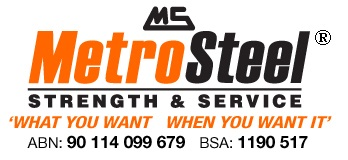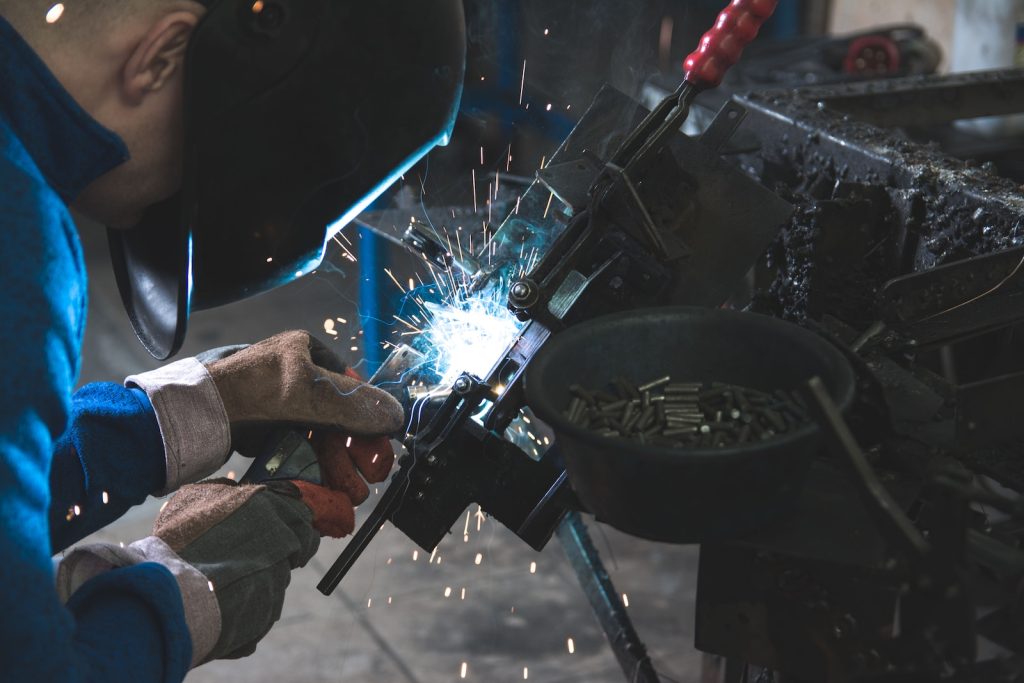When it comes to the art of steel fabrication, the choice of material can significantly impact the final product. At Metro Steel, we understand the critical role that steel plays in a myriad of fabrication projects. Our commitment is to provide not just steel, but a foundation for resilient and lasting structures.
Steel fabrication is an intricate process, integral to industries ranging from construction to automotive manufacturing. This process transforms raw steel into products or structures through cutting, bending, and assembling. The success of this transformation hinges on the steel’s inherent qualities.
Types of Steel Used in Fabrication
In the realm of steel fabrication, different types of steel are chosen based on their unique properties and specific application requirements. At Metro Steel, we offer a range of steel types, each with distinct characteristics:
- Carbon Steel: This is perhaps the most widely used variety in fabrication due to its versatility and affordability. Carbon steel is classified into three categories: low, medium, and high carbon steel, each varying in carbon content. Low-carbon steel, often referred to as mild steel, is pliable and easy to shape, making it ideal for general construction and automotive components. Medium carbon steel offers a balance between strength and ductility, suitable for machinery parts. High-carbon steel, known for its hardness, is used in high-strength wires and springs.
- Stainless Steel: Renowned for its corrosion resistance, stainless steel is an alloy containing chromium, which provides a protective layer against rust and staining. This property makes it ideal for use in environments where hygiene and cleanliness are paramount, such as in medical or food processing equipment. Additionally, its aesthetic appeal is a bonus in architectural applications.
- Alloy Steel: Alloy steel is made by combining carbon steel with various alloying elements like manganese, silicon, nickel, and chromium. This mixture enhances its mechanical properties, such as strength and resistance to wear, making it suitable for high-stress applications like pipelines, automotive parts, and power generators.
- Tool Steel: Known for its high hardness and resistance to abrasion, tool steel is primarily used in cutting and drilling equipment. It contains elements like tungsten, molybdenum, cobalt, and vanadium, which contribute to its heat resistance and durability. This type of steel is a staple in manufacturing tools and dies.
Each of these steel types plays a pivotal role in fabrication, offering tailored properties for diverse applications, a testament to the versatility and innovation found at Metro Steel.
Factors to Consider When Choosing Steel for Fabrication
When selecting steel for fabrication, several critical factors must be considered to ensure the material aligns with the project’s demands. At Metro Steel, we guide our clients through these considerations:
- Strength and Durability: The steel’s ability to withstand stress and maintain structural integrity over time is paramount. This involves evaluating the tensile strength and impact resistance suitable for the project’s demands, ensuring longevity and safety.
- Corrosion Resistance: In environments exposed to moisture, chemicals, or saline, the chosen steel must resist corrosion. Materials like stainless steel, with its chromium content, offer an added layer of protection against rust and degradation.
- Machinability and Weldability: The ease with which steel can be cut, shaped, and welded affects the overall efficiency and quality of the fabrication process. Steel that is too hard may be challenging to machine, while very soft steel might not weld well. Selecting a balance based on the fabrication technique is crucial.
- Cost-effectiveness: While quality is key, budget constraints cannot be overlooked. We consider the cost-effectiveness of the steel type, ensuring the best value without compromising on quality.
- Specific Project Requirements and Industry Standards: Each project comes with its unique demands and regulatory standards. We ensure that the chosen steel not only meets but exceeds these specific requirements, be it in terms of load-bearing capacity, fire resistance, or environmental sustainability.
Understanding these factors ensures that the steel selected is not just fit for purpose but also contributes to the success and longevity of the project.
Advantages of High-Quality Steel in Fabrication
Longevity and Reliability of End Products
High-quality steel is synonymous with enduring strength and stability. In fabrication, this translates to products and structures that stand the test of time. The resilience of top-grade steel ensures that constructions are not just durable, but also less prone to wear and damage over prolonged use. This longevity is a key advantage, especially in industries where structural integrity is paramount.
Safety and Performance Aspects
The use of high-quality steel directly impacts the safety and performance of the fabricated products. Superior steel offers enhanced load-bearing capacities, resistance to extreme temperatures, and robustness against environmental stressors. These qualities are critical in ensuring that buildings, vehicles, machinery, and other steel-based products are not only effective in their function but also offer the highest safety standards, minimizing risks of failures and accidents.
Economic Benefits in the Long Run
Investing in high-quality steel for fabrication might seem costly initially, but it offers significant economic benefits in the long run. The reduced need for repairs and replacements due to the extended lifespan of steel products lowers overall maintenance costs. Furthermore, the efficiency and dependability of high-grade steel can lead to increased productivity and operational savings. In a broader sense, the use of premium steel is an investment in sustainability, reducing the environmental and financial costs associated with frequent material replacements and failures.
Metro Steel: A Benchmark of Excellence in Steel Fabrication
Metro Steel stands out for its unwavering commitment to quality in the steel fabrication industry. Upholding stringent standards, they ensure that every piece of steel meets the highest benchmarks of durability and reliability. Their dedication to providing superior materials underpins the success of diverse fabrication projects, demonstrating their role as a crucial ally in the realm of steel fabrication.
The Keystone of Successful Fabrication Projects
The selection of appropriate steel is pivotal for the success of any fabrication project. This blog underscores the significance of choosing steel that not only meets but exceeds project requirements. Metro Steel emerges as a strategic partner in this journey, offering not just materials, but a commitment to excellence. Their quality steel is the cornerstone, ensuring the durability and success of fabrication projects, reinforcing the idea that the right steel choice is integral to project success.
 Talk to an Expert (07) 3204 1000
Talk to an Expert (07) 3204 1000 Working Hours - Mon – Fri 7:30 AM – 4:30 PM
Working Hours - Mon – Fri 7:30 AM – 4:30 PM
